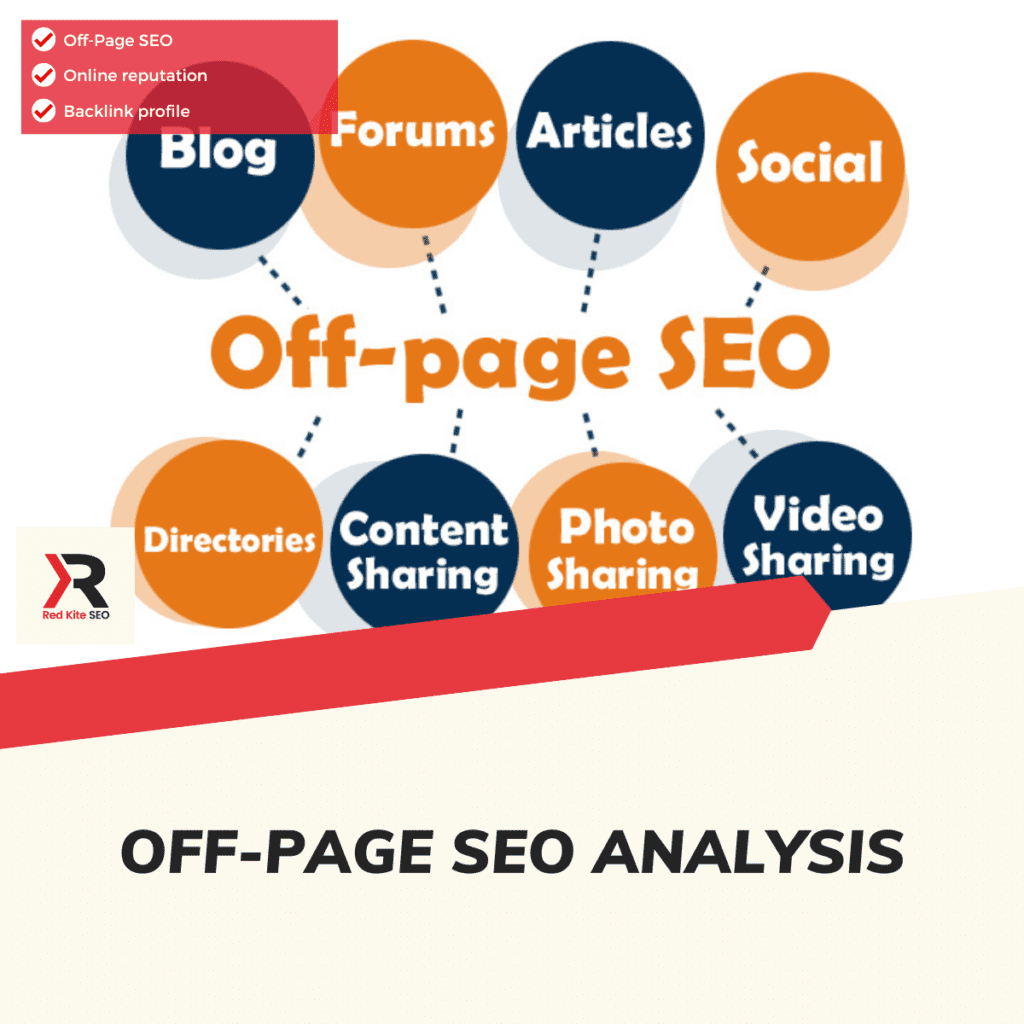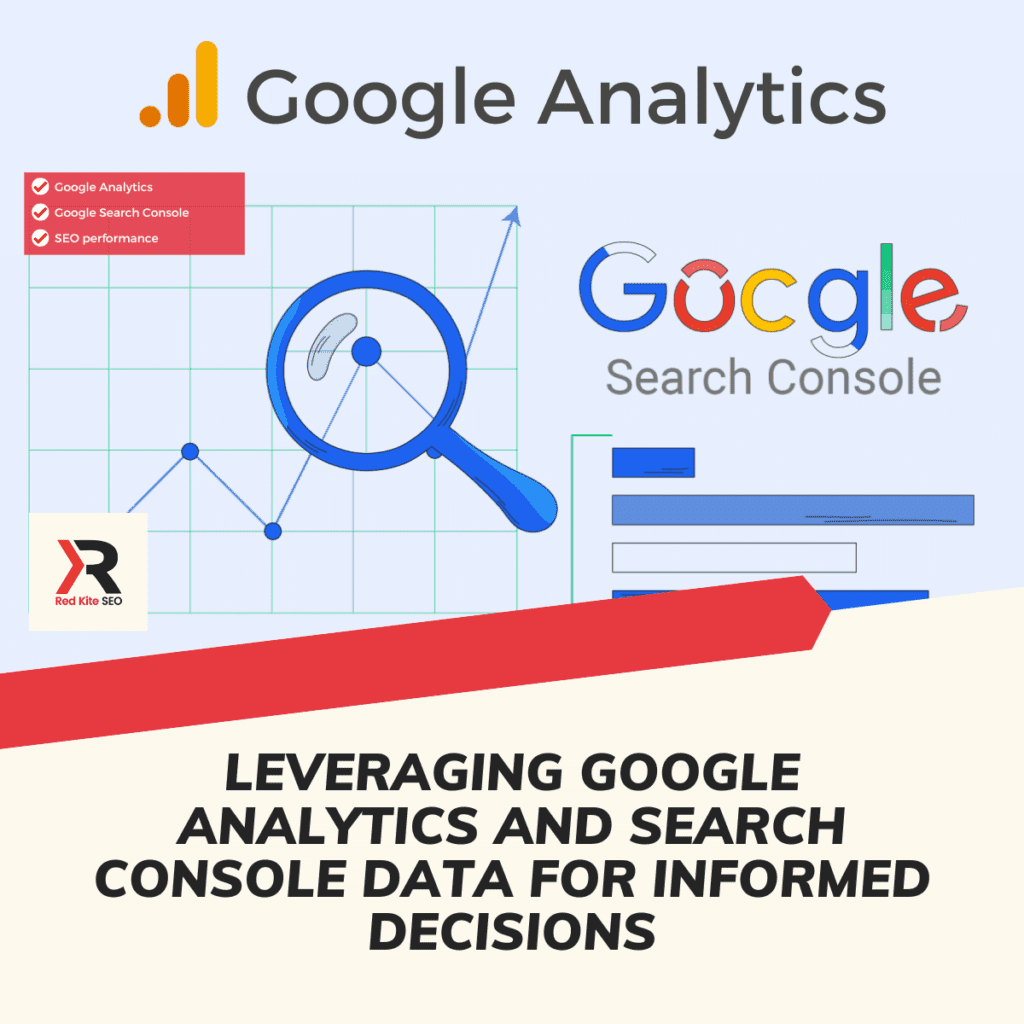Your online visibility is unlocked with website SEO analysis

SEO analysis is important when it comes to raising your internet presence. To rank higher in search results, as a business owner, you must optimise your website for search engines.
I'll give you a summary of the significance of website SEO analysis in this piece and explain how it can increase the online exposure of your website. Now let's get started!
An outline of SEO and the significance of it for online visibility
Increasing website traffic and enhancing online exposure requires search engine optimisation, or SEO. You can increase your online visibility, draw in more organic visitors, and rank better in search results by optimising your website and content according to keywords and search engine algorithms.
You may use SEO analysis to pinpoint problem areas and put plans into action to increase the popularity and profitability of your website.
Advantages of performing an SEO analysis on a website
Analysing your website for SEO gives you important information about how well your site is performing and what SEO tactics are working for you right now. It reveals any technological problems that might be impeding the functionality of your website and assists in pinpointing areas for improvement.
Based on the data, you can optimise your website to increase:
Performing an SEO Audit First: Establishing the Foundation

We are aware that doing a thorough SEO study of a website might be intimidating. It's like being informed, without knowing what's under the hood, that you need to fix your car.
But fear not—we are here to help you every step of the way, beginning with a thorough SEO site analysis. Think of this as the diagnostic stage, where we will determine what is functioning and what requires maintenance.
Important Things to Look Over in the Current SEO Status of Your Website
-
On-Page SEO: Are your titles and descriptions accurate and keyword-rich?
-
Content Quality: Is your content relevant, original, and helpful to users?
-
Site Structure and Navigation: Is your website easy to navigate and does it promote a smooth user experience?
-
Mobile Responsiveness: Can users easily access and navigate your site on mobile devices?
-
Page Load Speed: How quickly do your pages load on various devices?
-
Internal and External Links: Are all the links on your website working correctly and adding SEO and User value?
How to Use an SEO Checker to Find and Record SEO Problems
You must first identify and record any current problems before you can assess and enhance your website's SEO. To start, use tools that simulate how search engines might crawl your website and assess its content. These resources aid in identifying areas such as:
-
Broken links
-
Poor metadata
-
Page optimisation scores
-
Slow loading pages.
After you've located these problems, you may monitor your development as you optimise each component, making sure that no SEO detail is overlooked in your quest for a flawless website.
Keyword Research for Search Engines

In order to target the proper keywords for improved exposure in search engine results, keyword research is essential to SEO analysis.
Understanding the search phrases that members of your target audience use will help you tailor the content on your website to meet their demands and increase the likelihood that your website will appear higher in search results.
To do effective keyword research, utilise instruments such as:
To identify low-competition, high search volume relevant phrases. In order to get more relevant organic traffic to your website, don't forget to give priority to long-tail keywords that address particular user inquiries.
Understanding the significance of keywords in search engine optimisation
The basis of every SEO study is keywords. These are the terms and expressions that people enter into search engines to obtain data.
You may improve the content of your website to rank higher in search engine results by knowing which keywords are popular and relevant to your business.
Selecting keywords that correspond with the search intent of your target audience is essential if you want to increase qualified organic traffic to your website.
How to conduct keyword research effectively
It's crucial to begin keyword research by coming up with a list of pertinent terms and phrases for your company. Utilise tools for researching keywords such as:
All of these aid in determining the volume and level of competition for every keyword.
Seek for long-tail keywords with an appropriate ratio of competition to search volume. Finally, examine the keywords used by your rivals to obtain knowledge and identify new keyword chances.
Analysing Your Competition to See Where You Stand

When it comes to SEO, knowing where you stand in the market in relation to your competition is essential. It's important to know how you compare to other businesses in your niche in addition to optimising your website.
Competitor analysis is a sympathetic method of viewing your website from the perspectives of both customers and rivals, identifying areas for development and improvement.
Competition Analysis Is Essential for SEO
We may learn about competitors' strategy and what is and is not effective for them by conducting competition analysis. We can use important lessons we may learn from their successes and failures to our own SEO approach, saving us the trouble of having to learn them the hard way through trial and error.
How to assess search engine ranks and rival websites
Assess the following elements of your site's web page quality and examine the online presence of your competitors to get a sense of the SEO landscape.
-
Study their website structure and navigation.
-
Examine the keywords they rank for and how these overlap with your target keywords.
-
Analyse backlink profiles to identify sources of reputed links.
-
Investigate their content marketing efforts, looking at both quality and variety.
Using competitor analysis to improve your SEO approach
Investigating your rivals entails acting and refining your strategy based on the data gathered. Seek methods to enhance your backlinks, content, and keywords to create a more trustworthy website.
Your ability to think comprehensively depends on your ability to comprehend both your clients and your rivals. This tells you what your clients will desire in the future and also lets you identify what your competitors are doing well.
On-Page SEO Analysis

Search engine optimisation of your website requires an on-page SEO study. This entails evaluating the headings, meta tags, and content of websites for keywords and appropriate link structure.
Your website's online exposure and search rating in search engine results pages can be enhanced by optimising on-page elements. In order to maintain an advantage over competitors, boost traffic, and draw in more organic visitors, don't forget to periodically assess and tweak your on-page SEO.
Key factors to consider in on-page SEO analysis
When conducting an on-page SEO analysis, there are several key factors that I consider. These include:
-
Keyword optimisation: Ensuring that my content, meta tags, and headings contain relevant keywords that reflect what my target audience is searching for.
-
Content quality: Creating high-quality, valuable content that engages and informs website visitors. (Think, written, images and video.)
-
Mobile friendliness: Optimising your website to be mobile-friendly, as more and more people are accessing the internet using their mobile devices.
-
Site structure and navigation: Ensuring that my website is well-organised and easy to navigate, which helps search engines understand the hierarchy and relevance of my content.
-
URL structure: Using accurate, short and keyword-rich URLs that accurately reflect the content of my webpages.
-
Internal linking: Including internal links throughout your website to guide visitors to related content and help search engines crawl and index my site.
By considering these factors during your on-page SEO analysis, you can optimise your website for better visibility and improve its chances of ranking higher in search engine results.
Optimising website content, meta tags, and headings
I use meta tags and headings to optimise the content of websites, which enhances page quality and search engine visibility.
In order to properly direct users and search engines around my website, I also make sure that my meta tags appropriately reflect the content of my web pages and link structure. I also utilise headings that are clear and simple. I can increase the likelihood that my website will appear higher in search engine results by improving these components.
Off-Page SEO Analysis

When it comes to off-page SEO analysis, it’s important to consider factors that impact online visibility beyond your website. This includes monitoring your:
-
Backlink profile
-
Social media presence
-
Online reputation.
Creating high-quality backlinks and participating regularly on social media might help your website become more visible and eventually attract more organic visitors.
Recall that for increasing your internet presence, off-page SEO is equally as important as on-page optimisation and page quality.
Exploring off-page SEO factors that impact online visibility
I investigate a wide range of external aspects when doing off-page SEO analysis. I learn how my internet reputation, social network presence, and backlink profile sites affect my visibility.
I give great priority to building links such as:
-
Relevant links
-
Authority backlinks
-
Similar Competitor links
And engaging on social media to increase my online presence and drive organic traffic. Both off-page SEO and on-page optimisation are important for boosting a website’s visibility.
Establishing a strong social media presence and backlink profile
Being active on social media and constructing high-quality backlinks are essential. Obtaining backlinks from reputable and pertinent websites is my top priority in order to build trust with search engines.
I also interact with my followers on social media sites in order to expand my reach, generate new prospects, and improve website traffic.
I bolster my internet presence and raise my website's search engine ranking by doing this.
Technical SEO Analysis

When it comes to technical SEO analysis, my main goal is to find any hidden problems that might be influencing the functionality of my website.
Examining elements like crawlability and website performance is part of this. By making these adjustments, I can make sure that search engines can quickly access and browse through the large number of pages on my website, which will increase my online presence.
A basic list includes:
-
XML Sitemap
-
Robots.txt
-
Canonical URLs
-
URL Structure
-
SSL Certificate
-
Structured Data
-
Site Architecture
Identifying technological problems that impact the functionality of websites
Examine every technical detail of your website during an SEO study to find any problems that can be hurting its functionality.
Check your site audit for factors like:
-
Loading speed
-
Mobile responsiveness
-
Broken page links
-
And duplicate content.
By addressing these technical issues, I can ensure that your website runs smoothly and provides a seamless user experience.
Optimising the speed and crawlability of websites
Enhancing the speed of a website is essential for improving user experience rather than just for search engine ranking. This can be accomplished by:
Improving crawl-ability makes sure that search engine crawlers can quickly access and index the pages on your website. Maintaining and inspecting these on a regular basis will improve the functionality of your website significantly.
Making Informed Decisions by Utilising Search Console and Google Analytics Data

I am aware of how overwhelming the data can be when you first access Search Console or Google Analytics. When it comes to analysing and improving your website, these free tools are invaluable partners.
Let's explore how you may use this information to strategically and thoughtfully modify your website in order to significantly improve its search engine optimisation.
Using Google's Tools to Analyse Detailed SEO Data
Useful information and insights are available from Google Analytics and Search Console to evaluate and enhance the SEO of your website. These no-cost resources demonstrate:
-
Visitor sources.
-
Content interaction.
-
Page views.
-
Potential causes for leaving.
-
Google Analytics lets you analyse user behaviour, traffic sources, page views, and much more, helping you understand the performance of each piece of content.
-
Search Console provides information on how Google views your site, reports on search queries that bring users to your site, and identifies issues that might affect your search rankings.
Analysing the Data to Make Useful Improvements
Making sense of the data is just as important as gathering it and doing competitive analyses. Through the interpretation of the detailed information these analytical tools provide, you can identify particular sections on your website that require work.
-
Identify which pages have the highest bounce rate and make them more engaging.
-
Determine which keywords are driving traffic, and optimise your content for those terms.
-
Use the data to understand the user’s journey, and modify your site structure to help users find information easier.
Using data from Google Analytics and Search Console can improve your website’s SEO strategy and increase its visibility and ranking on search engines.
List of Free SEO Tools

The brief selection of free SEO tools that are accessible below can assist you in identifying ways to improve your website. Although the data points provided by each tool will differ, they will all provide you with some things to think about when it comes to website SEO.
Regular SEO analysis is essential for preserving online visibility.
It's critical to maintain online visibility. Finding methods to improve requires regular data and insight analysis. This helps us outperform our rivals and stay up to date with changes made by search engines.
We can enhance user experience, improve our website's quality, and raise our search engine ranking by doing this. In this manner, our intended market can locate us online with ease.
Tips for implementing an effective SEO strategy
Here are some pointers to bear in mind when putting into practice a successful SEO plan:
-
Conduct thorough keyword research and target relevant keywords in your content.
-
Optimise your website’s on-page elements such as meta tags, headings, and URLs.
-
Build high-quality backlinks from authoritative websites.
-
Consistently create fresh and engaging content.
-
Monitor your website’s performance using analytics tools.
-
Stay updated with the latest SEO trends and adapt your strategy accordingly.
By following these tips, you can improve your website’s visibility and attract more organic traffic from other sites and search engines.
Commonly asked questions about website SEO analysis
What is an SEO website analysis?
Website a tool or SEO analysis tool is the process reporting tool of evaluating and assessing the performance of a webpage or a website in terms of its search engine optimisation. It involves analysing various elements such as keyword usage, on-page optimisation, backlinks, and technical aspects to identify areas for improvement and enhance online visibility.
Why is website analysis important?
Website analysis is important as it helps to identify the strengths and weaknesses of a website’s optimisation strategy. It provides insights into how the website is performing in search engine rankings and helps to uncover opportunities for improvement. By conducting regular SEO analysis, businesses can enhance their online visibility and attract more organic traffic.
How often should an analysis for website SEO be done?
The frequency of website analysis depends on various factors such as the size of the website, the level of competition, and the frequency of updates. In general, it is recommended to conduct SEO analysis at least once every three to six months. However, for more competitive websites or those that frequently update their content, more frequent analysis may be necessary.
Can I perform website analysis on my own?
Website owners can use free SEO report analysis tools to evaluate their website’s optimisation, but it’s best to consult with an SEO professional for accurate report interpretation and effective strategies.
How long does it take to see the results of SEO analysis?
The timeframe to see the results of SEO analysis depends on the changes made and the competitiveness of the industry. Some improvements, such as fixing technical issues or optimising content, can lead to immediate changes in search engine visibility. However, significant improvements in keyword rankings, and traffic may take several months to observe. It is important to be patient and consistent in implementing SEO strategies to see long-term results.